Josh Norman arrived in Carolina as a fifth-round draft pick in 2012, a raw talent in need of direction and already in possession of a big personality.
Perhaps that made Steve Wilks the perfect man to coach him.
"I'm wired different," Norman said. "But so is he."
Wilks now is the new head coach of the Arizona Cardinals, but then he was the defensive backs coach for the Panthers, a strong personality himself. One of Wilks' own tenets was that while you teach every player the same, you most certainly had to coach them differently.
Without a relationship, the rest won't work, and the relationships are evident, from one-time Wilks' pupils like Antonio Cromartie, Eric Weddle, Kurt Coleman, new Cardinal Bené Benwikere and, yes, Norman.
"It's easy to develop a player if you take the time to develop the person," Wilks said.
If any one player encapsulates Wilks as a coach, it is Norman, who needed Wilks' personal touch. Wilks helped guide Norman from rookie starter with warts through second-year struggles to all-pro status, and for that, Norman can't praise his former coach enough.
"If you can lead me in the right direction without me questioning everything – which I'm still going to question – that's something," Norman said. "I was learning from a guy that had a hunger to be a head coach in the National Football League and be the best one to ever do it, like I have the same drive to be the best cornerback to ever play it.
"The eyes can see we're in the same image."
Wilks takes the field this week for the first time with the Cardinals, with an extra voluntary minicamp allowed because Wilks is in his first season. Meetings and some one-on-one conversations have given players who don't yet know Wilks a glimpse into the personality of their new head coach. The field always reveals so much more.
Waiting for them is a man who insists on taking a special interest in his players because he doesn't see how he cannot. They will also see a head coach confident he is exactly where he should be.
"I don't think there is anyone in this process who works as hard as I do," Wilks said. "I put the time and effort in, and I feel like I have a great influence on the players I coach.
"I've always had that air of confidence. I try to stay away from the word arrogant because that is far from me. I am truly humble and know I am fortunate. But I am confident in my ability."

During Wilks' first coaching stop at Johnson C. Smith University in his hometown of Charlotte, the NFL's Panthers had just begun to play at nearby Ericsson Stadium. Down the street, opportunity awaited.
He got permission from the owner of the Firestone Tire business on the corner of South Tyron Street and Stonewall to sell drinks and chips. Wilks went to Sam's Club and proceeded to make a little extra income before home games, years before coaching at the stadium would become his job.
"Being on the corner I really believe set him on his course," said Wilks' college teammate Randall McCray, who now works with Wilks as the Cardinals' assistant special teams coach.
A professional playing career didn't work out for Wilks after playing at Appalachian State. The defensive back got into training camp with the Seahawks in 1992 and played for the Charlotte Rage in the Arena Football League in 1993, but then moved into the private sector. Thanks to his Appalachian football ties, he got a job with First Citizens Bank, training in Raleigh for a year before taking over a Charlotte branch as a manager at age 25.
The shirt-and-tie work wasn't for him. There was an itch to coach, a void without football.
One of Wilks' former coaches at Appalachian State, Ruffin McNeill, had a cousin who was taking over the Johnson C. Smith program in Division II. Wilks was suddenly a defensive coordinator, a de facto liaison to the administration, and, oh yeah, he'd also help line the field and wash uniforms.
Wilks still has his first contract from Johnson C. Smith, framed, as a reminder of his humble beginnings.
"I made $30,000 and was extremely happy," Wilks said. "I thought I was rich."
One day, Wilks and his friend and fellow assistant coach, Steven Aycock, sat in front of the Johnson C. Smith football building, just talking. The Charlotte skyline was in the distance, including the outline of the Panthers' stadium.
"You know what?" Wilks told Aycock. "I'm going to be coaching there one day."
Wilks turned out to be soothsayer, of course. It just took him a while to wind his way the less than two miles separating the school and the stadium, to the job that ultimately set him up to be the Cardinals' head coach.
Wilks got a chance to be a head coach at Savannah State in 1999 and moved up the ladder, job to job, quickly. Seeking the next position was never the focus, Wilks said – "Take care what is in front of you, do your job, be big-time where you are. That's always been my thing" – but with the contacts he made working camps and traveling to different campuses in an effort to learn the coaching craft, job offers came. His move to Notre Dame under Ty Willingham, for instance, bloomed from the seed of knowing a fellow church parishioner while at East Tennessee State that turned out to be the brother of a Willingham assistant.
After Savannah State, Wilks coached at six different schools in six years, moving from Illinois State to Appalachian State to East Tennessee to Bowling Green to Notre Dame to Washington.
"It was a running joke in my house, if you look at my bio," Wilks said. "My wife, every time I'd go to the (coaches) convention, she's say, 'Just call me and let me know where we are moving.' "
In 2006, it was to Chicago and the NFL, where Wilks coached in a Super Bowl his first season (as well as the Monday Night Meltdown at University of Phoenix Stadium) for Lovie Smith and, perhaps most importantly, met Ron Rivera.

Rivera was on Smith's staff when Wilks arrived, and the two worked well together. When Rivera left to become the Chargers' defensive coordinator a year after joining the team, he hired Wilks in 2009. After Rivera became Carolina's head coach in 2011, he had to wait a year for Wilks' San Diego contract to expire, and then wanted to add Wilks again.
The year before Wilks arrived to re-join Rivera, the Chargers had the 25th ranked defense and a worse secondary. In 2010, the last year Rivera and Wilks were together in San Diego, the Chargers had the No. 1 defense in the league.
"I convinced him to come for an interview, and we're talking, and I'm like, 'Listen Steve, the last couple of stops, wherever you have been with me, we've had a No. 1 defense and been in the playoffs,' " Rivera said. "Steve, in pure Steve fashion, looks at me and says, 'Coach, maybe it's every time you are with me.'"
Rivera smiled at the memory. "But that's him."
Wilks bleeds self-belief. At his introductory press conference, he turned to General Manager Steve Keim and team president Michael Bidwill to tell them they made the right decision – a point Keim said Wilks had emphasized repeatedly during the interview process. In a later radio interview, Wilks was blunt.
"It's hard to blend in when you're born to stand out," Wilks said.
"One of the things I look for is strong leadership skills and with leadership comes self-confidence," Bidwill said. "He carries himself with self-confidence – and should, because of what he's done in his career. This is the next natural step for him. It's not too big of a job for him."
Sean McDermott was Rivera's defensive coordinator but it was Wilks whom Rivera tabbed to be his assistant head coach. Wilks ran the team when Rivera's brother passed away, and when Rivera's daughter graduated from college. If Wilks has something personal he needs to talk about, he goes to wife Marcia. Professionally, the first call goes to Rivera, and the relationship goes both ways.
"He was the one guy on my coaching staff who could come in and close the door and tell me if I screwed it up or if I am doing right," Rivera said. "That's important, because you need to have a guy who will tell you what you need to hear and not what you want to hear."
Wilks praises a host of coaches that have influenced him over the years at all his stops. Smith. Norv Turner. The McNeills. At the recent owners meetings he spent time with McDermott, the man he succeeded as Panthers' defensive coordinator when McDermott was named Buffalo head coach in 2016, to ask about how McDermott maneuvered through his first year as the man in charge.
The impact of working in the first Super Bowl with two African-American head coaches -- Smith for Wilks' Bears and Tony Dungy of the Colts in the 2006 season – also resonates.
Wilks was interviewed for the Los Angeles Rams' job in 2017 before it went to Sean McVay, and was also a candidate for the New York Giants job this past offseason before the Giants hired Pat Shurmur. He isn't unaware he was the lone Black head coach hired this year, but insists it wasn't something he was thinking about either.
"I always think about, look at the quality of the person, the quality of the coach," Wilks said. "If he is qualified, give him a fair shot and let him get the job.
"Now, when you go through the process and you get the job and you have 481 text messages saying how proud they are, what a difference you made, and you feel like you are only doing this for yourself but it does mean a lot to so many others … it's special. I don't take it for granted."

If Wilks' career becomes the stuff movies are made of, perhaps the casting is already natural.
"We call him Denzel, in the flesh," Norman said.
That's Denzel as in actor Denzel Washington, a man Wilks resembles. Wilks downplays the Denzel angle, although it's something that has followed him through life -- whether it's a vacation with his family in Los Angeles where a stranger assumes he is the actor, or the subject coming up with Giants co-owner and movie producer Steve Tisch when Wilks interviewed with New York.
The moniker is about more than looks, though. It's about a look, too.
"He does his faces, and when he does his face, he does look like Denzel," said Benwikere, who spent three years in Carolina. "(Players) just got on him, 'Oh, Denzel is out today.' He embraced it. One time, he told a story, he was in one of his moods and his wife laughed and messed with him, 'Oh, so you're Denzel right now.' "
In the offseason and OTAs, Benwikere said, Wilks doesn't push quite as hard as the teaching is in its early stages. The switch flips once training camp begins.
"You'll hear me and (fellow Cardinal and former Panther) Lou Young in camp joke with him about being 'tucked in,' " Benwikere said. "When he's got his shirt out, he's calm and cool, laughing. Shirt tucked in, it's all business, baby."
Images of new Cardinals coach Steve Wilks at some of his past stops
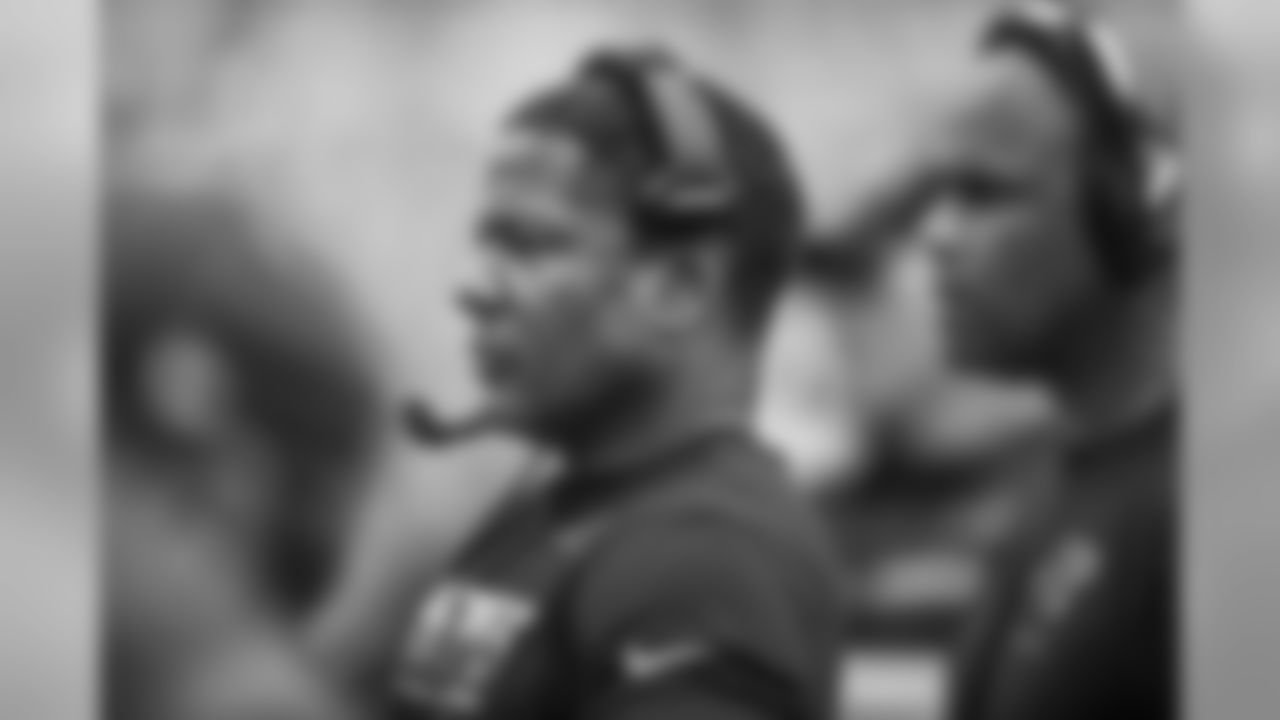
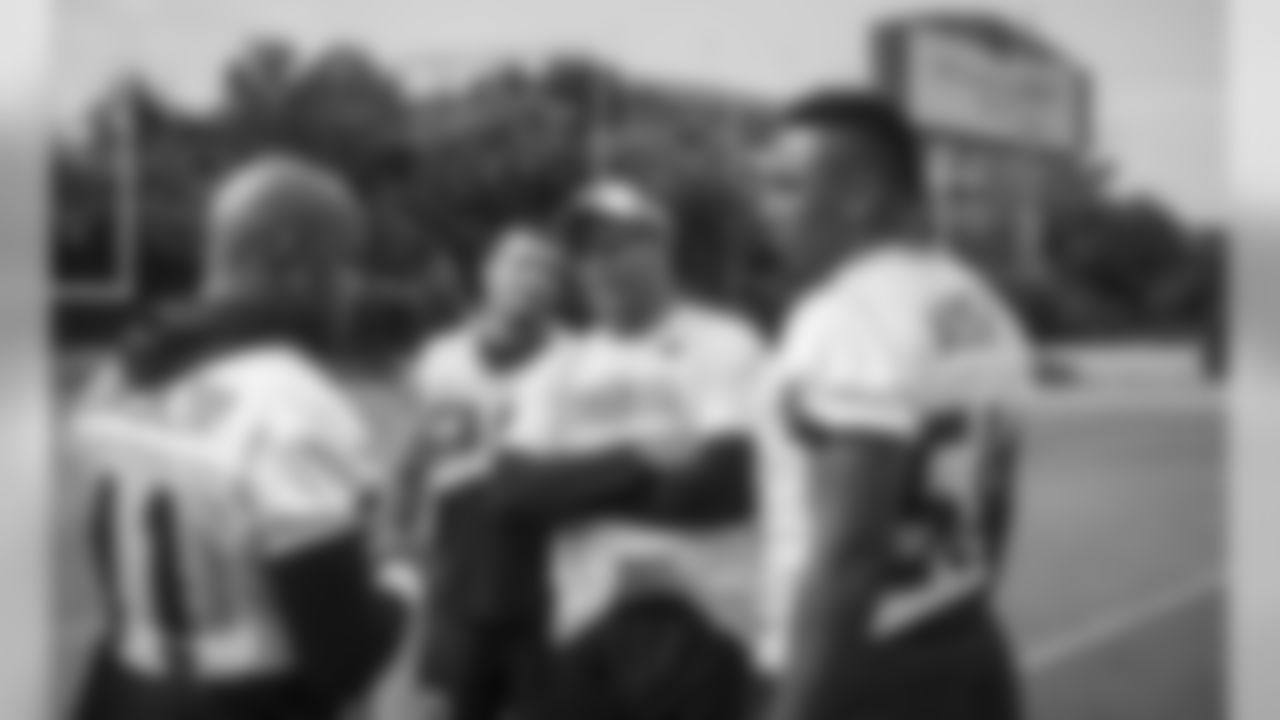

Wilks in 2015 during a game against the Falcons



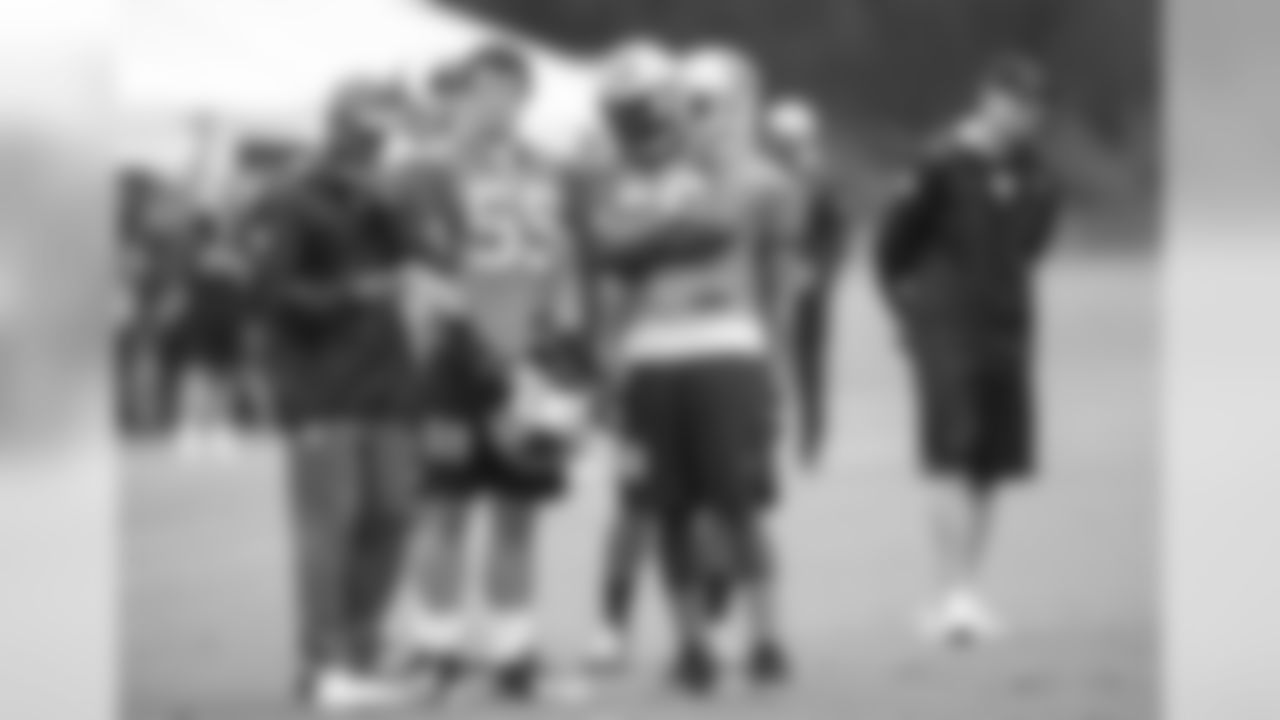
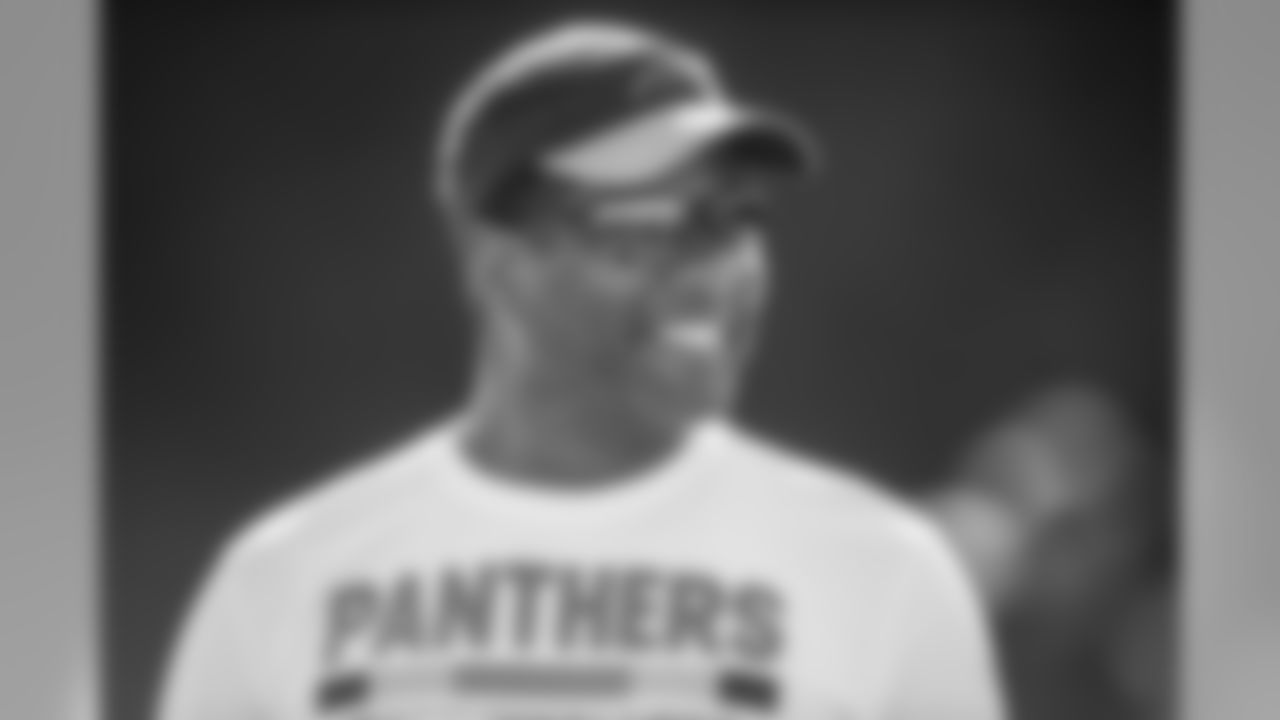


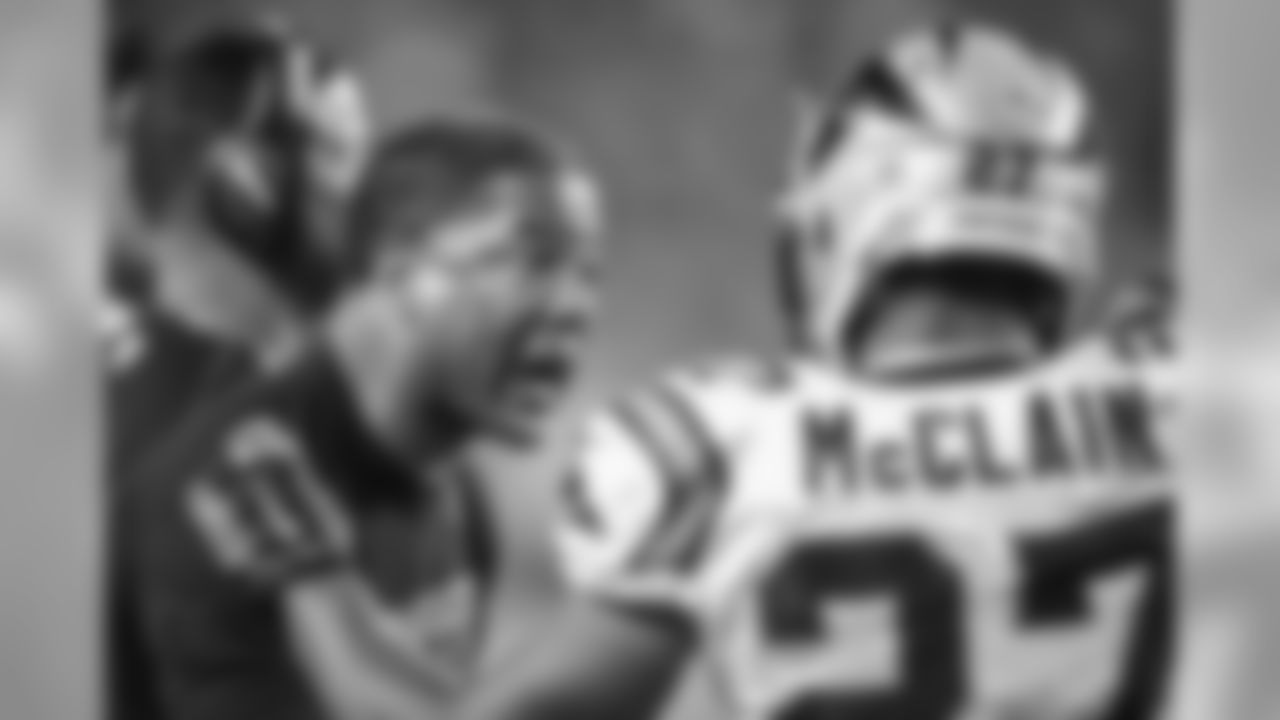
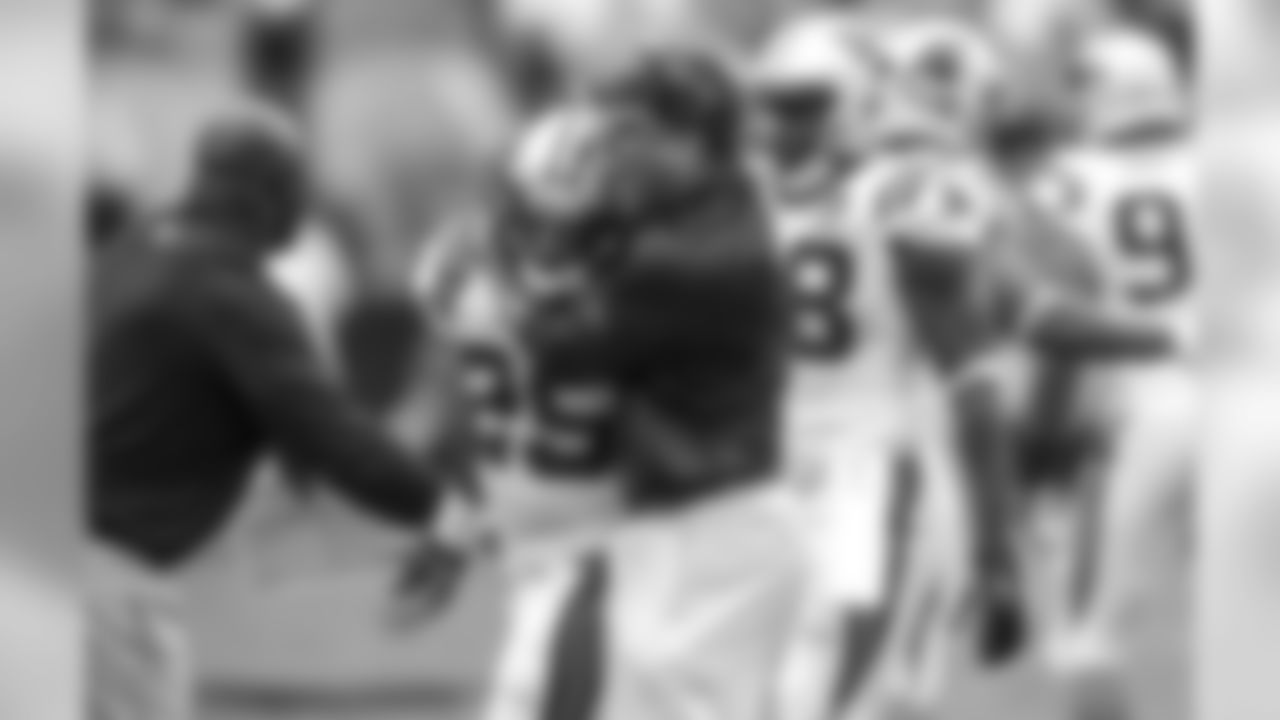
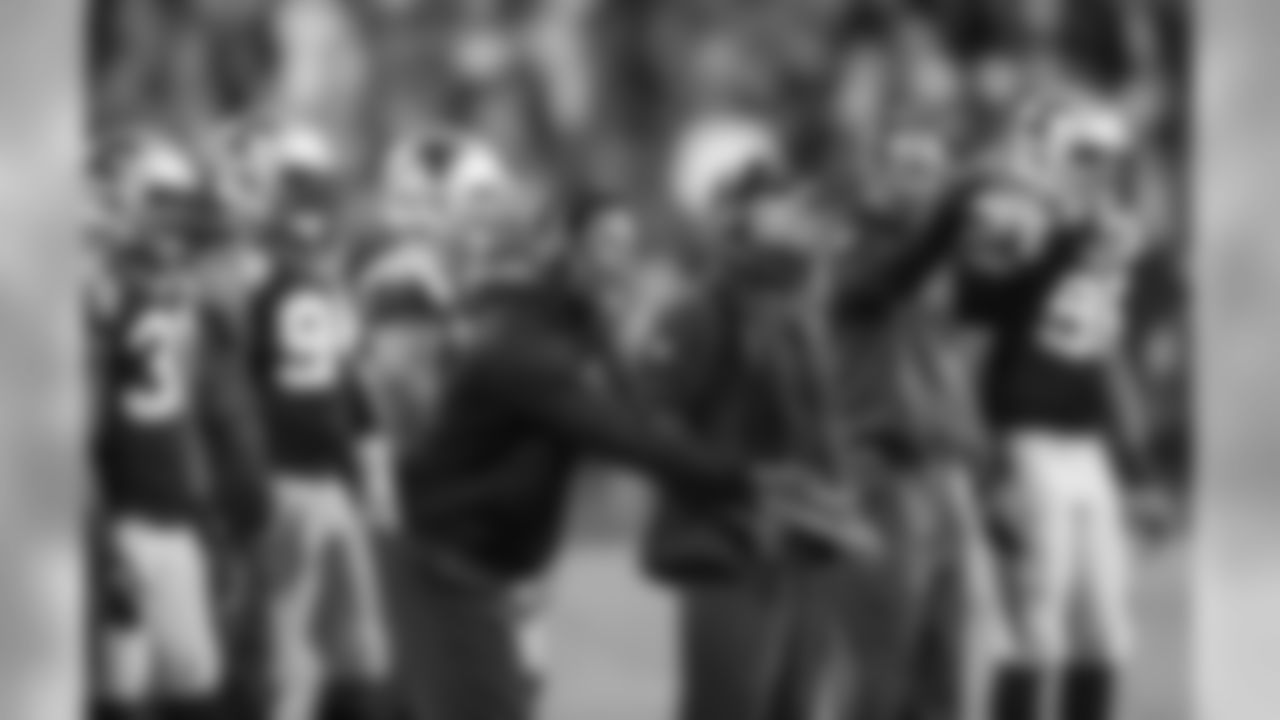


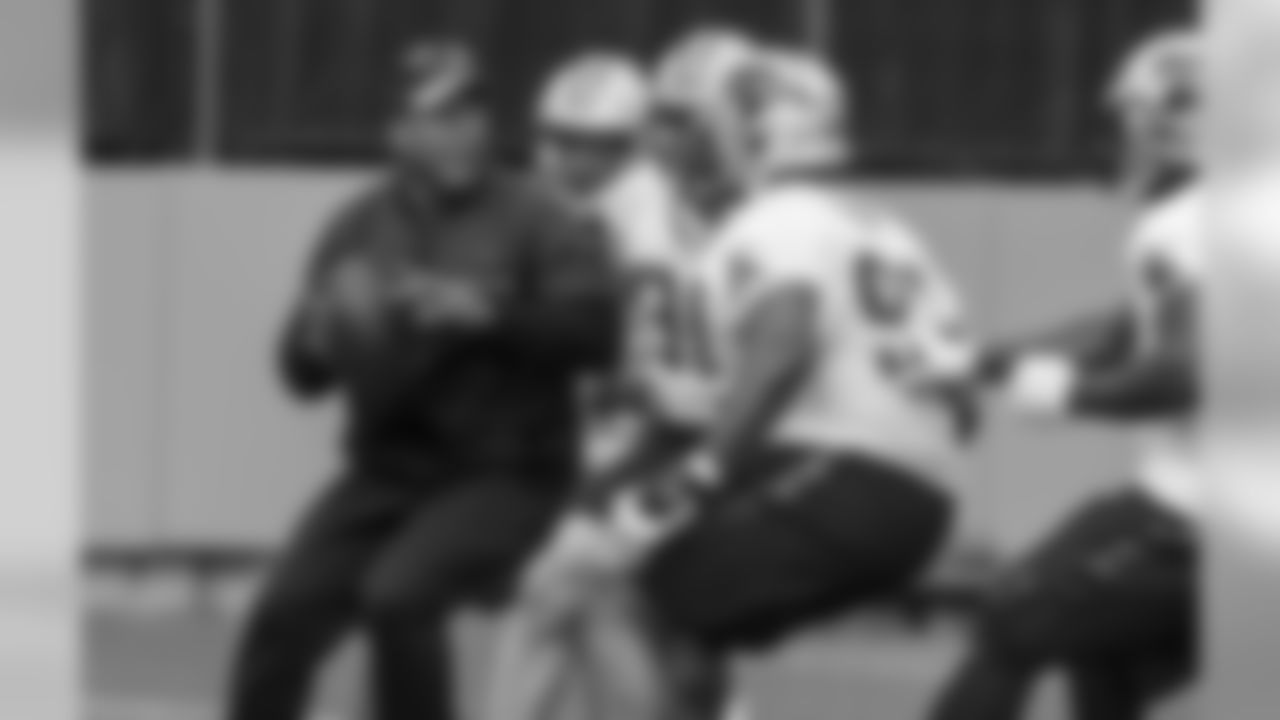

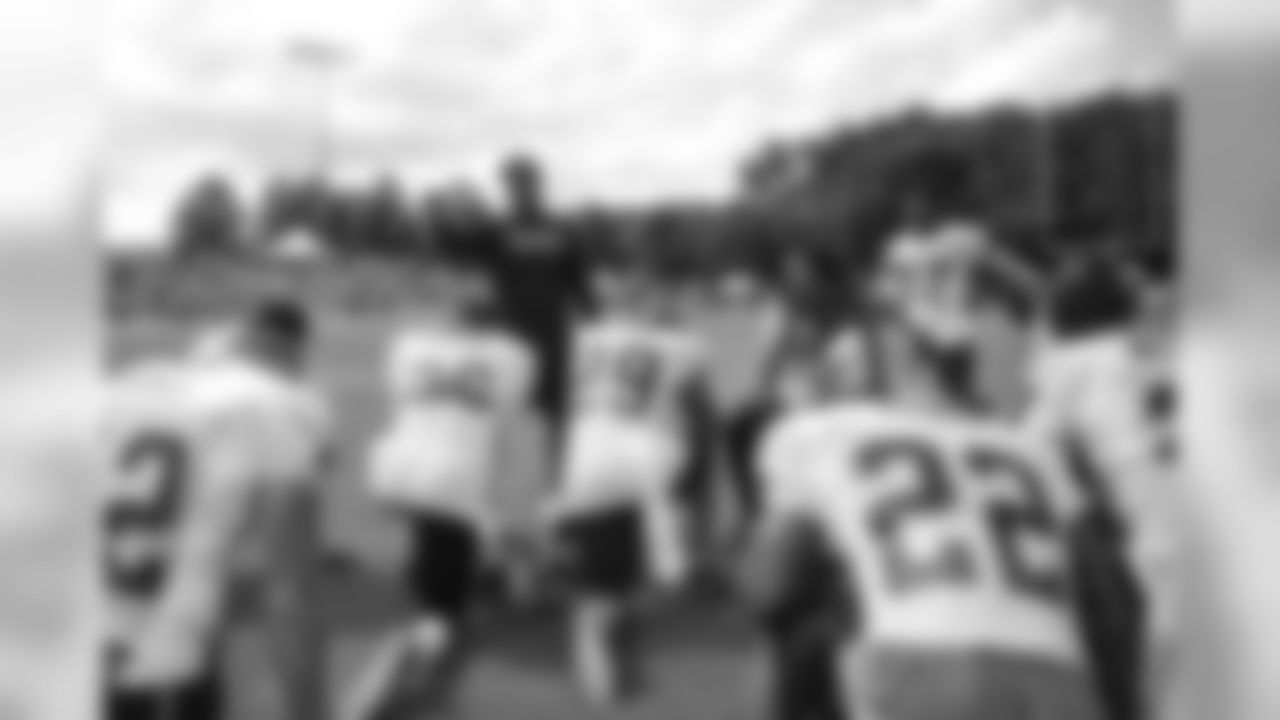
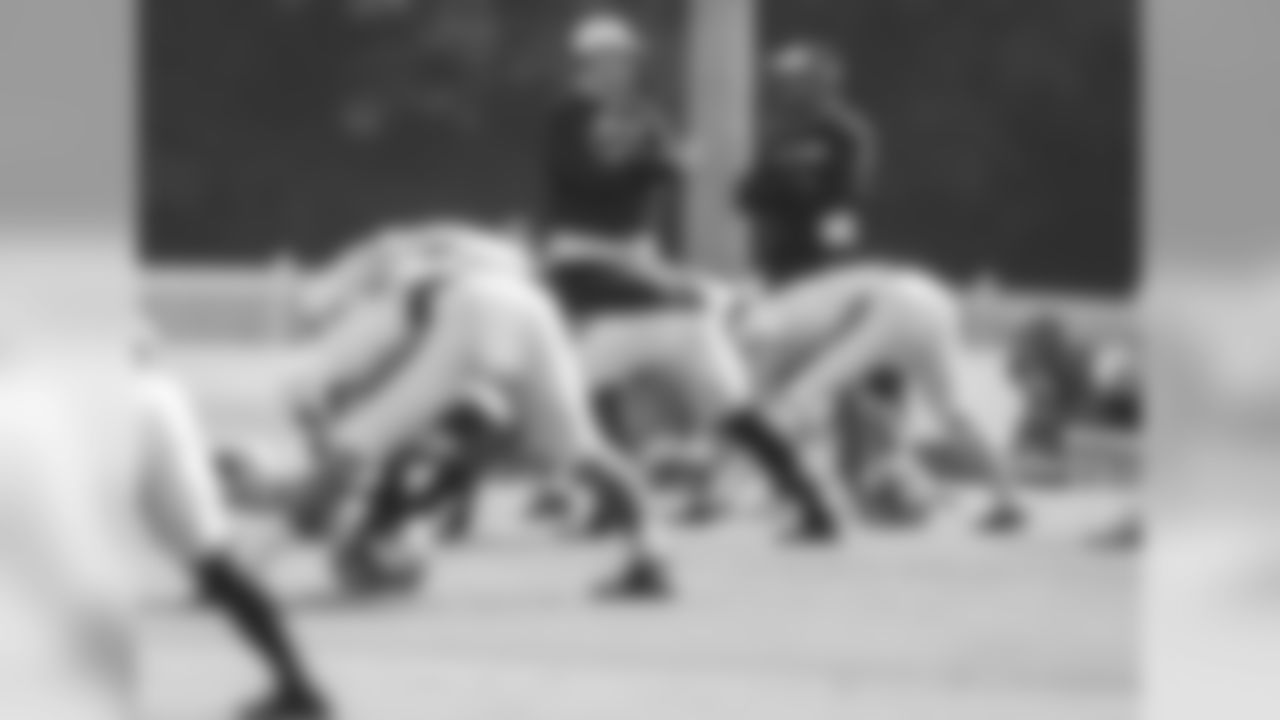

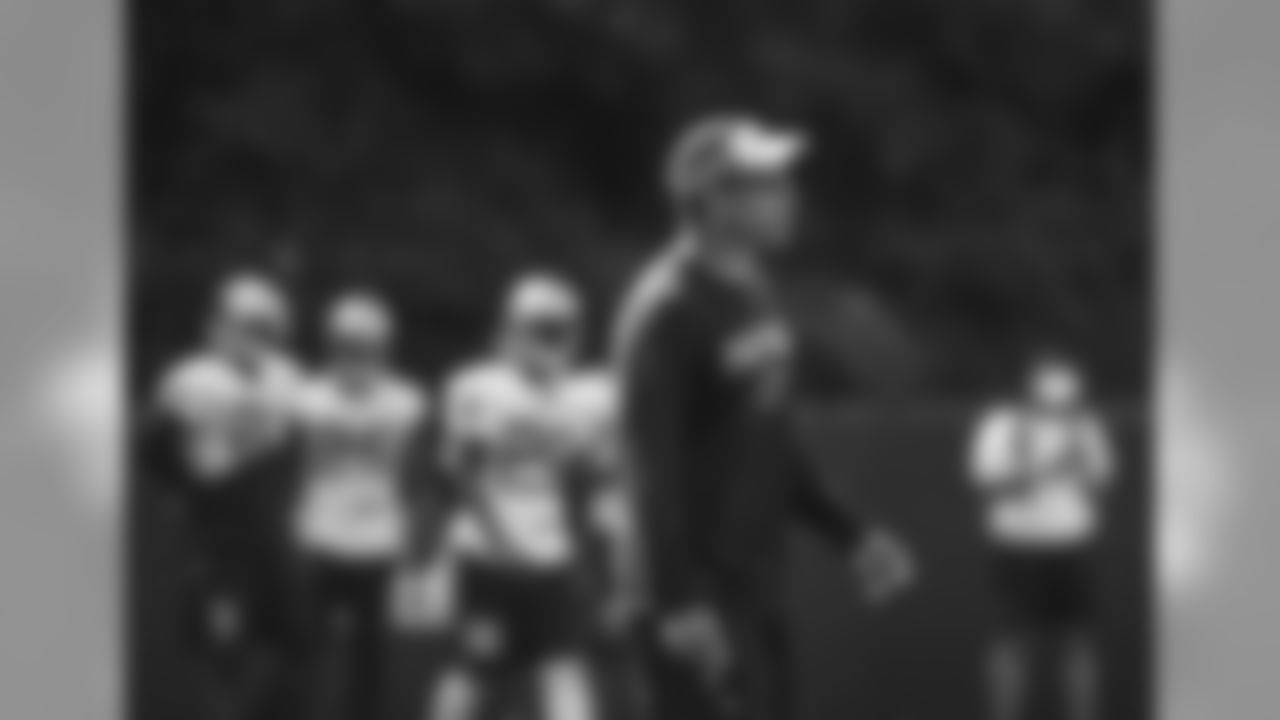
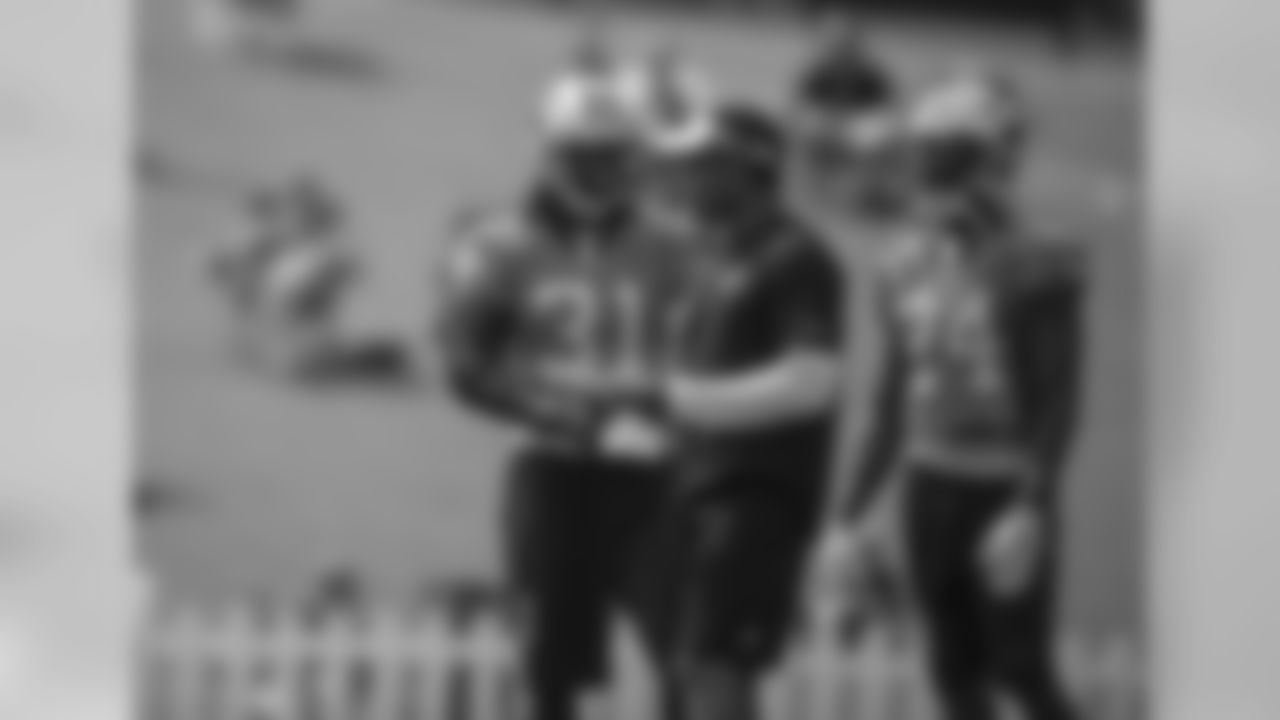

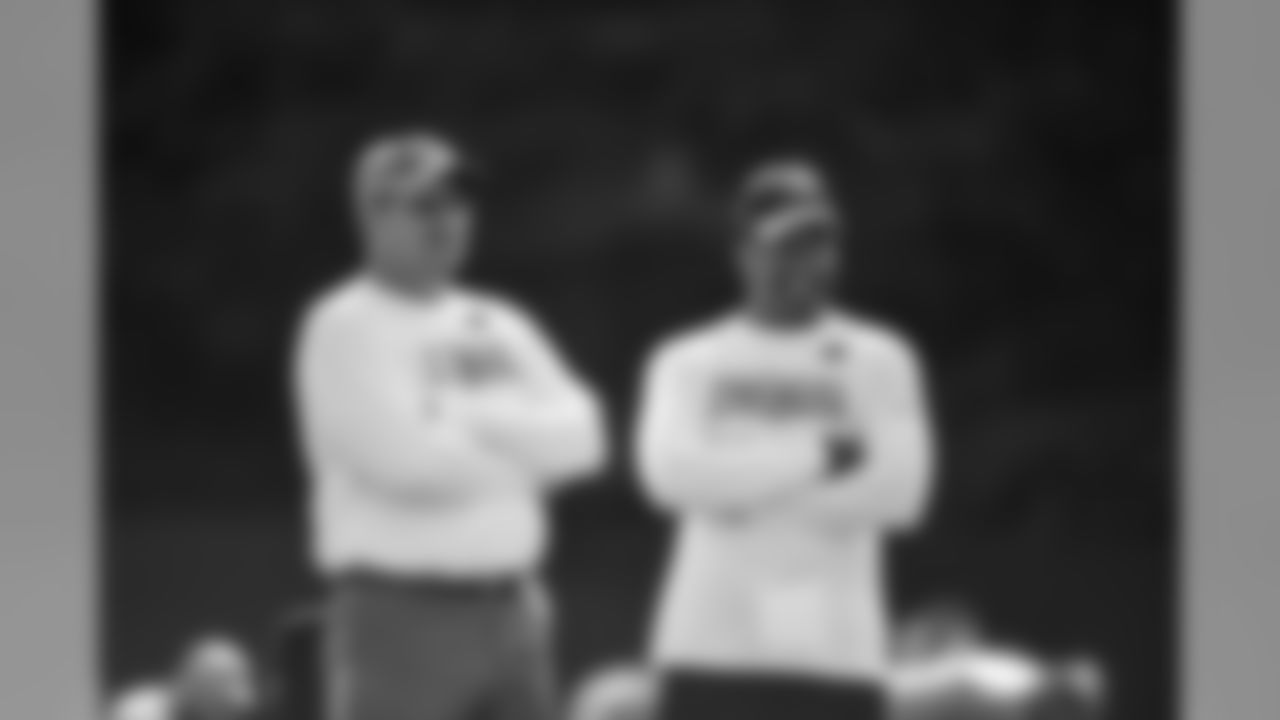





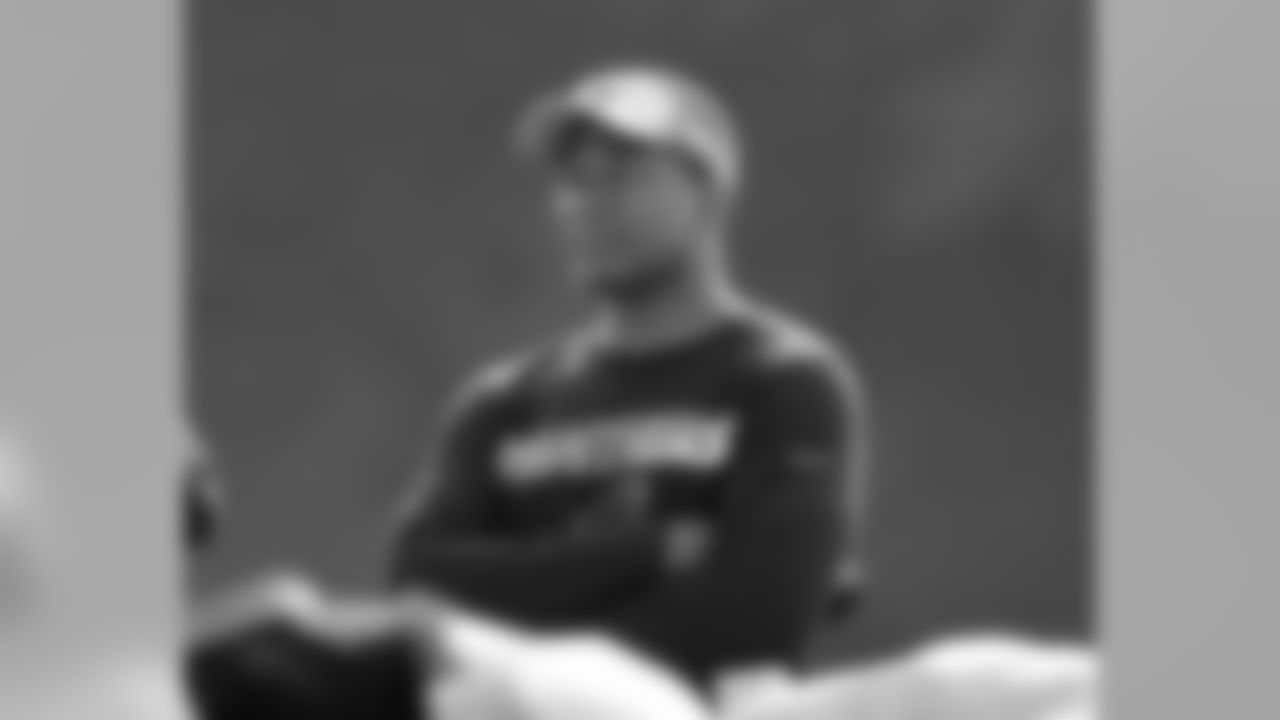
New Cardinals coach Steve Wilks in training camp with the Panthers in 2015


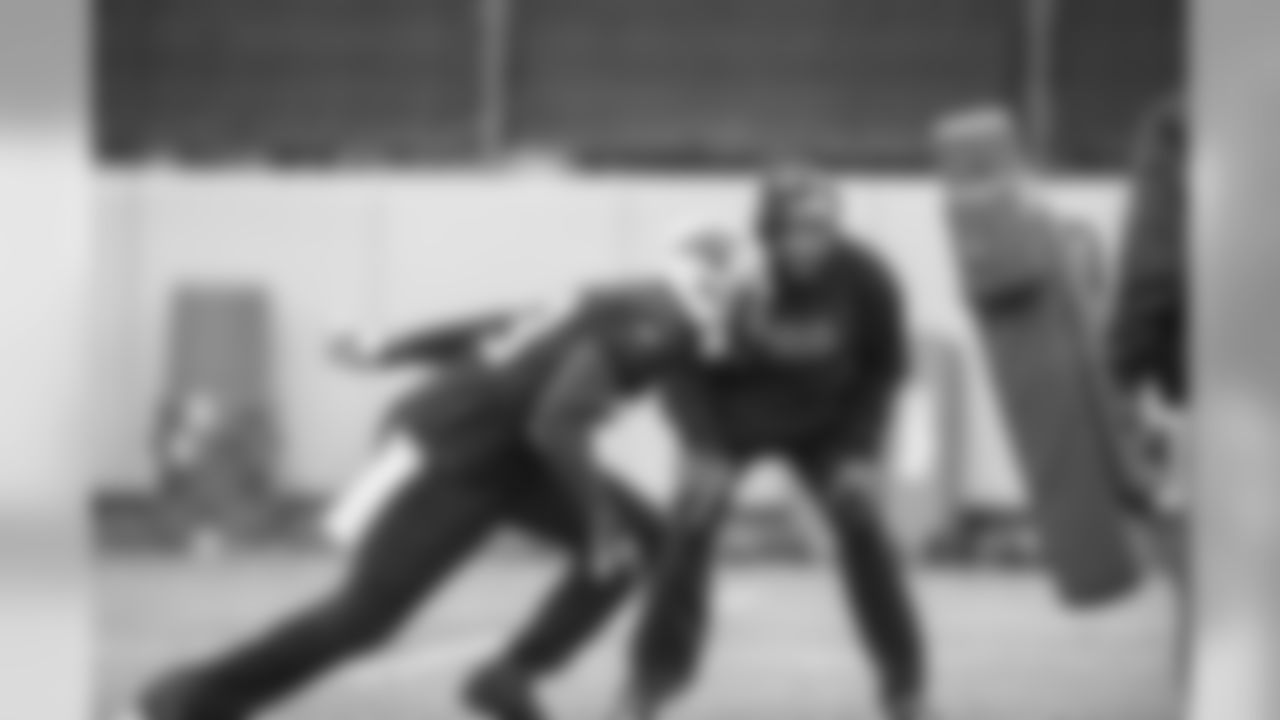
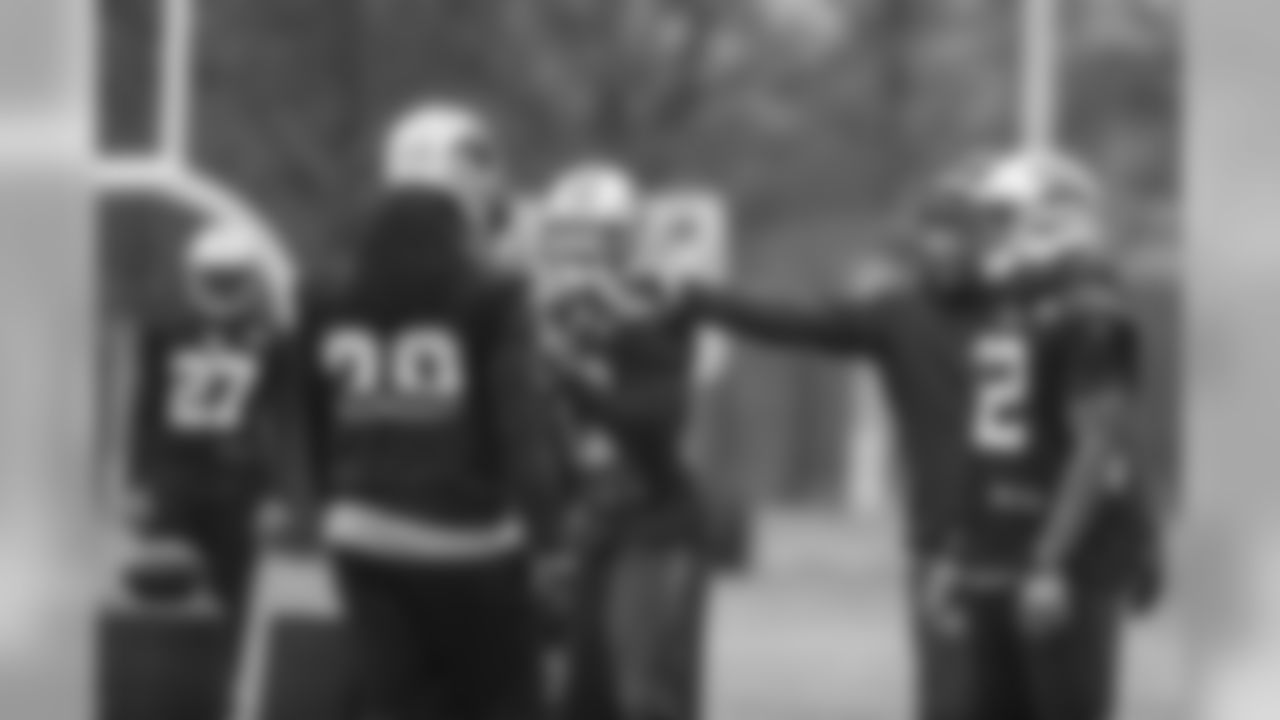

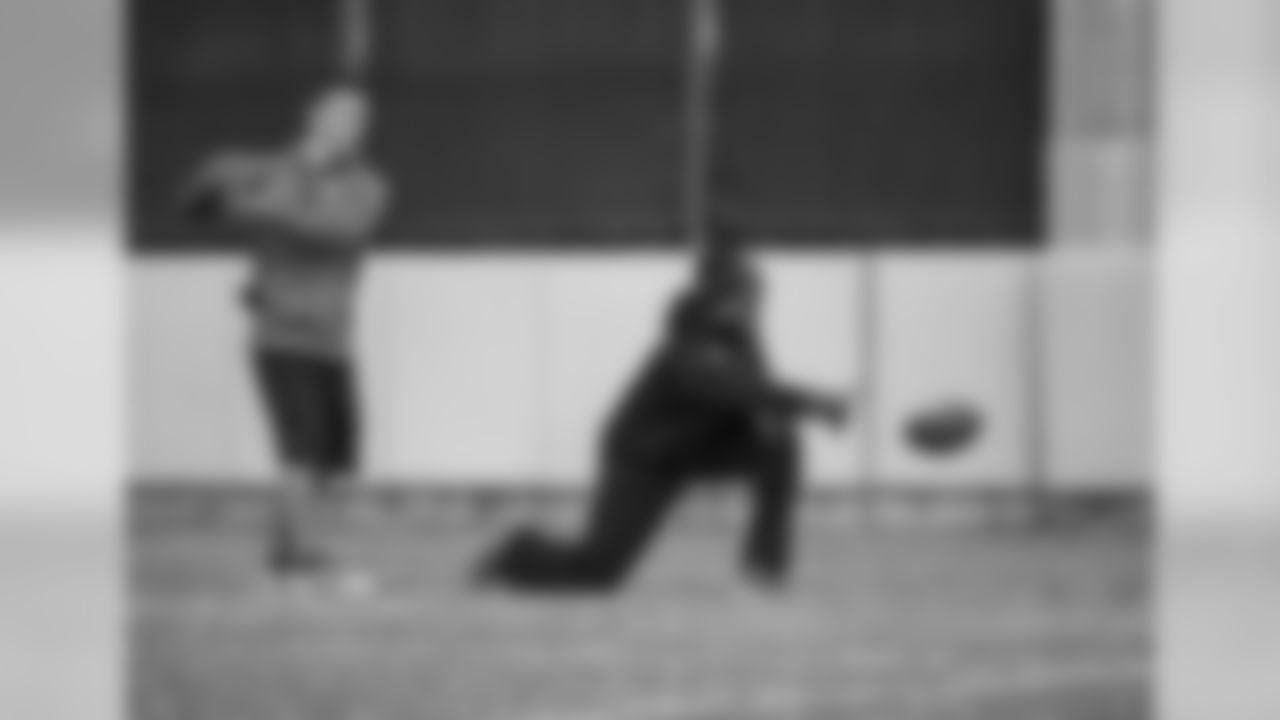



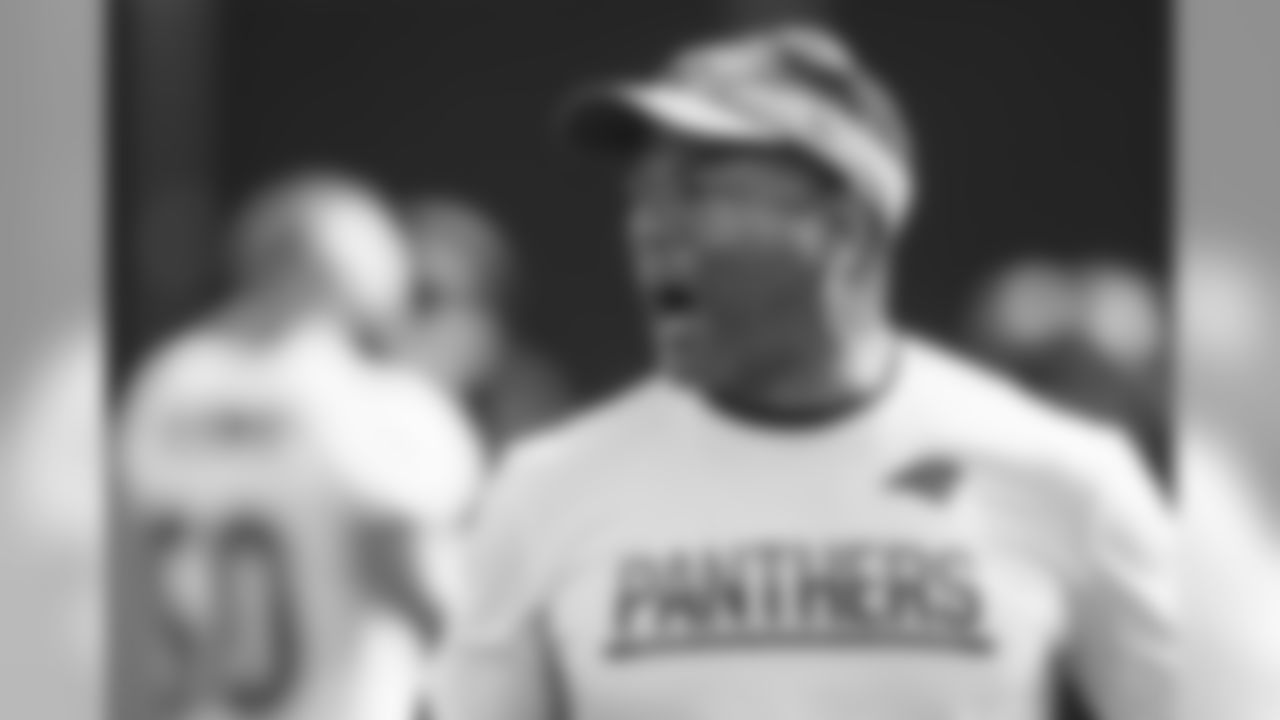



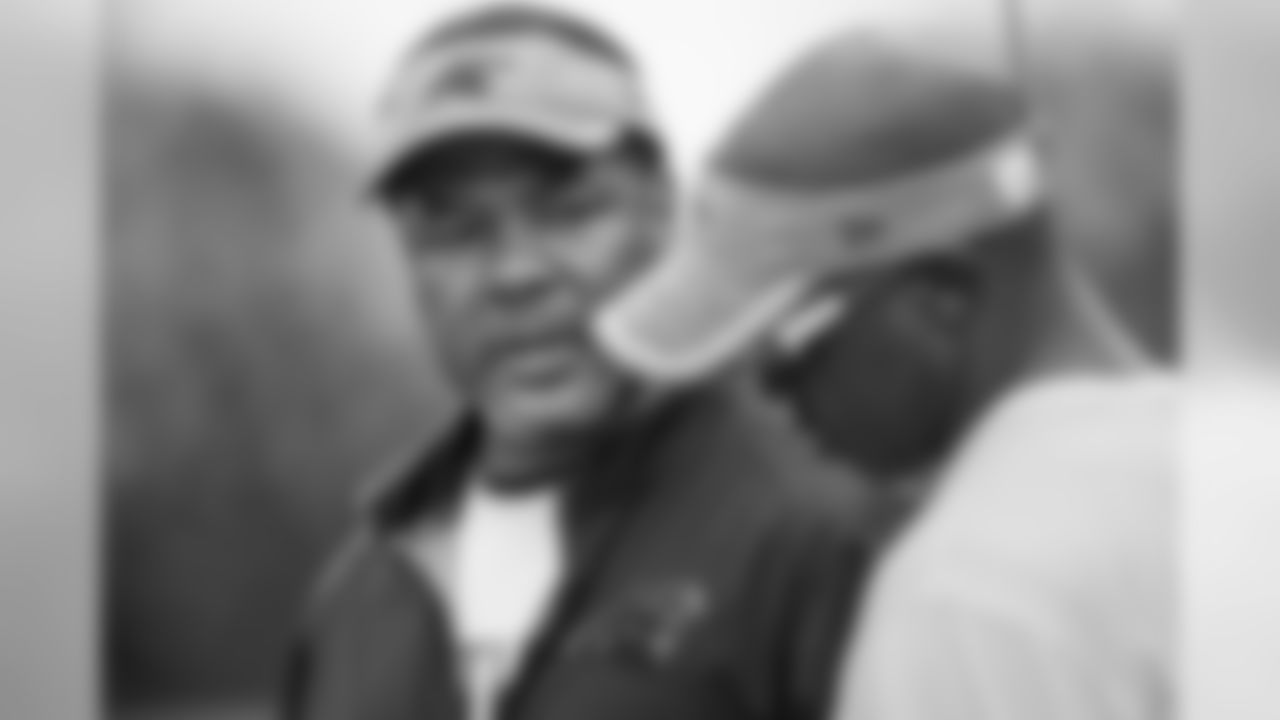



Wilks in 2014

Wilks on the sideline during a 2013 game against the Cardinals

Wilks during the playoffs after the 2013 season

Wilks in 2012

Wilks in 2011

Wilks in 2011 with Chargers S Eric Weddle

Wilks as secondary coach with the Chargers in 2010

Those new to Wilks can also see the calm and cool Wilks, although when it was suggested that it was a different side of the man, wide receiver Chad Williams slammed the brakes. "Nah, nah, nah, nah. Every side of coach Wilks is in charge. Every side," Williams said with a laugh. "Don't get that twisted."
Sometimes, players flash back to a memory of Denzel's head coaching character in "Remember the Titans." Or when Wilks is being particularly intense, they evoke Washington's unforgettable role as a crooked cop with the LAPD.
"I'll give them a look or something and they're like 'Aw, (expletive), 'Training Day' is ready to come out,'" Wilks said. "Coach Rivera would play on it a little bit, dropping clips Saturday night with the highlight film (during meetings). Always a joke of theirs."
Then there is Wilks' "swag." The term often was used with former coach Bruce Arians, but Wilks has his own version he incorporates into his coaching.
Benwikere admittedly didn't get haircuts often as a rookie, because he hadn't in college. Wilks stayed on the rookie, asking him "you going to clean up?"
"When the time is right, he'll definitely let that message into the locker room, that when we get on this bus … I don't want anything raggedy, that we came to play," Benwikere said. "It's the first step in handling business for him. To be honest, he might be in a full suit, strutting. That's just him."
A coach does need that "it" quality, Wilks acknowledged. That swag, the way Wilks carries himself, he can remember his cousin talking to him about the subject back in high school.
"I've heard players say it from time to time, but it's just part of my makeup," said Wilks, who will turn 49 in August. "I used to tell my DBs, you better look like you have some damn swag when you get on that bus, because I know how I'm going to look when I get on there and you represent me."
It's another way to get a team's collective attention.
"He is Mr. Cool," Cardinals guard Justin Pugh said. "You're speaking to him, and he's just got that aura about him that he's got it all figured out."
After Wilks helped shape Norman with some tough love, Norman remembered seeing Wilks pull out a notebook he kept in an office drawer. Norman would pester him about what it was, until Wilks let him know it was a coaching book, for whenever he became a head coach.
Norman already believed head coaching was in Wilks future, that whatever team hired him "was going to get a freaking blessing in disguise."
"He is that guy to give you that drive to go out and run through a brick wall," Norman said. "You're going to try your hardest to get through it, that's for dang sure. And if you don't …"
Norman pauses for a moment, then chuckles. "… he's going to take you out and put someone else in there."
"That's Denzel right there," Norman added. "He's a Pop to me. He's definitely my football Pop, no doubt about that. Regardless of what team I'm on, it goes far beyond that.
"When he sees it, he goes and gets it. No excuses for it. He will find a way. He will fix problems. He's a revolutionary, a wise man who I really miss. I really do."















